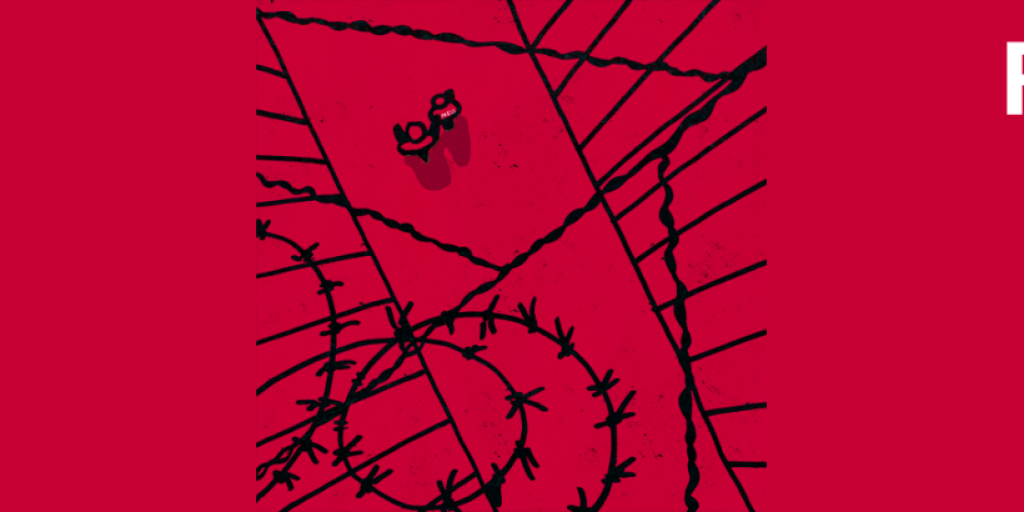Nearly half of the world’s missing journalists are victims of enforced disappearance
As the first World Congress on Enforced Disappearances begins in Geneva, Reporters Without Borders (RSF) — which will attend the event — calls on the world’s nations to prioritise the universal ratification of the International Convention for the Protection of All Persons from Enforced Disappearance.
According to RSF’s figures, governments are responsible for 45 per cent of the world’s missing journalists.
On a global scale, it is clear that press freedom is threatened by the very individuals who should be protecting it: political authorities. This observation, highlighted in RSF’s 2024 World Press Freedom Index, is illustrated by the stark reality that nearly half of all missing journalists were abducted by ruling forces.
Of the 95 journalists missing to date, 43 were victims of enforced disappearance. International law defines this type of disappearance as the deprivation of an individual’s liberty by an official authority that refuses to either acknowledge this deprivation or reveal the fate and whereabouts of the person concerned.
‘It’s hard to imagine that nations that are meant to protect press freedom are, in fact, the very forces orchestrating the disappearances of journalists — or turning a blind eye,’ says Antoine Bernard, RSF’s Director of Advocacy and Assistance.
‘And yet at least 43 journalists in the world today are victims of enforced disappearance. By taking part in this first congress, RSF is proud to commit to the universal ratification of the United Nations Convention against Enforced Disappearances, to investigate and report on these cases, and to work with national and international justice systems to punish the perpetrators and compensate the victims.’
Here are several emblematic cases of journalists who fell victim to enforced disappearance:
The latest case: Habib Marouane Camara in Guinea
Camara, Managing Director of the news website, Le Révélateur 224, was arrested by military police on 3 December 2024 and taken to an unknown location. No reason was given for his arrest. His family has had no news of him since.
A vocal critic of Guinea’s ruling junta, the journalist was on his way to Lambanyi, a district of the capital Conakry, when a military police truck intercepted his vehicle.
Armed men in military attire smashed his car’s windshield, dragged him out, and took him away. When contacted by RSF, Minister of Information and Communication Fana Soumah stated that he had ‘no information at this time’.
Enforced disappearances — and forced conscriptions — in Burkina Faso
The fate of Alain Traoré, a journalist with the Omega Media press group, remains a mystery. The host of the radio show, Le Défouloir, was abducted from his home on 13 July 2024 by individuals claiming to belong to the National Intelligence Agency (ANR).
This modus operandi echos the abduction of Serge Oulon, who was taken from his home on 24 June 2024; his forced conscription into the army was acknowledged by authorities four months later.
Similarly, journalists Adama Bayala and Kalifara Séré were also abducted and forcibly conscripted in June. No information has been disclosed about their whereabouts or health condition.
Ukraine: journalists targeted by Russian forces
Ukrainian journalist Zhanna Kyselova was arrested on 27 June 2024 by Russian occupation forces at her home in Kakhovka, a city in the Kherson region of Ukraine, which is partially occupied by Russia. She was the editor-in-chief of the local newspaper Kakhovska Zorya, which was shut down after the invasion on 24 February 2022.
No information about her disappearance or her place of detention has been disclosed. This is not the first time Russian authorities have abducted journalists without acknowledging responsibility.
The Ortega Regime’s repression in Nicaragua: where is Fabiola Tercero Castro?
On 12 July 2024, Nicaraguan journalist Fabiola Tercero Castro disappeared along with her family following a raid on her home in Managua by seven police officers who confiscated her work equipment.
Although no formal charges were filed against her, she had been under house arrest and was required to report to a police station daily.
The journalist, who has worked for various media outlets, including the online magazine Galeria News, is believed to be held in a state prison but there has been no official confirmation of her whereabouts.
President Daniel Ortega’s regime has escalated its crackdown on the few remaining independent journalists in the country.
In Sri Lanka, journalist Prageeth Eknaligoda still missing after 15 years
A vocal critic of the government, cartoonist and political columnist for the news site Lanka E-news, Prageeth Eknaligoda was abducted on 24 January 2010 in Homagama, a town near the capital Colombo, just two days before the re-election of President Mahinda Rajapaksa.
This case has stalled since 2019, but on 6 December 2024, a new hearing in the trial against nine members of the military intelligence services accused of his disappearance took place amidst a political shift.
The new ruling coalition — National People’s Power (NPP) — led by President Anura Kumara Dissanayaka, elected in September, has promised to expedite investigations into ‘political killings and abductions of journalists’.
Mexico: the country with the highest number of enforced disappearances
Six journalists are currently victims of enforced disappearance in Mexico: Evaristo Ortega Zarate (missing since 2010), Federico Manuel García (2012), José Alfredo Jiménez Mota (2005), María Esther Aguilar Cansimbe (2009), Mauricio Estrada Zamora (2008) and Sergio Landa Rosado (2013).
- This article first appeared here




